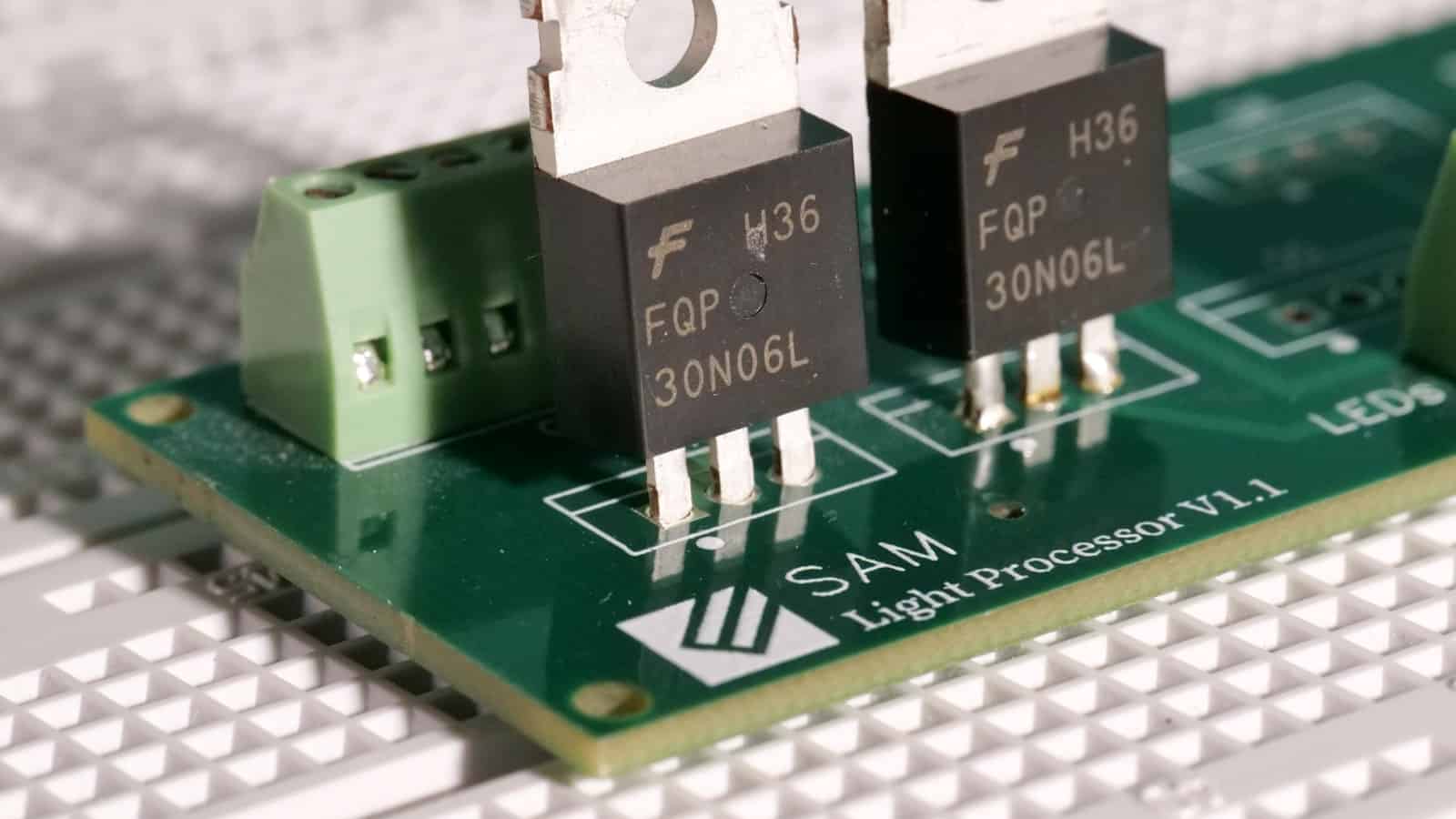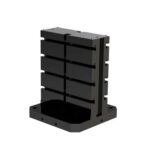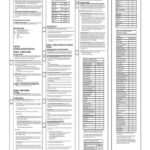Why Choose a PCB Contract Manufacturer?
Before diving into the qualification process, let’s briefly discuss the benefits of working with a PCB contract manufacturer:
-
Cost savings: Outsourcing PCB manufacturing to a contract manufacturer can significantly reduce your production costs, as they have the necessary equipment, expertise, and economies of scale.
-
Focus on core competencies: By partnering with a PCB contract manufacturer, you can focus on your core competencies, such as product design and marketing, while leaving the manufacturing to the experts.
-
Access to advanced technology: PCB contract manufacturers often invest in state-of-the-art equipment and technologies to stay competitive, which means you can benefit from their capabilities without having to invest in expensive machinery yourself.
-
Scalability: Contract manufacturers can easily scale production up or down based on your needs, allowing you to respond quickly to changes in market demand.
Key Factors to Consider When Qualifying a PCB Contract Manufacturer
1. Technical Capabilities
The first step in qualifying a PCB contract manufacturer is to assess their technical capabilities. This includes evaluating their:
- Manufacturing processes (e.g., surface mount technology, through-hole technology)
- Equipment and machinery
- PCB assembly capabilities (e.g., component placement, soldering)
- PCB fabrication capabilities (e.g., multilayer boards, high-density interconnect)
- Quality control processes and certifications (e.g., ISO 9001, IPC standards)
It’s essential to ensure that the manufacturer’s capabilities align with your product requirements and can meet your quality standards.
2. Experience and Expertise
When choosing a PCB contract manufacturer, it’s important to consider their experience and expertise in the industry. Look for a manufacturer with:
- A proven track record of successfully delivering PCB projects similar to yours
- Experience working with clients in your industry or market segment
- Knowledgeable and skilled staff, including engineers and technicians
- Expertise in design for manufacturability (DFM) and design for assembly (DFA)
An experienced and knowledgeable manufacturer can provide valuable insights and recommendations to optimize your PCB design and manufacturing process.
3. Quality Management System
A robust quality management system (QMS) is crucial for ensuring consistent and reliable PCB production. When evaluating a contract manufacturer, consider their:
- Quality control processes and procedures
- Testing and inspection equipment
- Certifications (e.g., ISO 9001, ISO 14001)
- Compliance with industry standards (e.g., IPC, UL, RoHS)
- Continuous improvement initiatives
A manufacturer with a strong QMS can help minimize defects, reduce rework, and improve overall product quality.
4. Communication and Customer Support
Effective communication and customer support are essential for a successful partnership with a PCB contract manufacturer. Look for a manufacturer that offers:
- Clear and responsive communication channels
- Dedicated account management and technical support
- Regular project updates and progress reports
- Flexibility and willingness to accommodate changes or special requests
- Proactive problem-solving and issue resolution
A manufacturer that values open communication and customer support can help ensure a smooth and collaborative working relationship.
5. Supply Chain Management
A PCB contract manufacturer’s supply chain management capabilities can significantly impact your project’s lead times, costs, and overall success. Consider their:
- Supplier network and relationships
- Component sourcing and procurement processes
- Inventory management and warehousing capabilities
- Ability to handle supply chain disruptions or component shortages
- Logistics and shipping arrangements
A manufacturer with a strong supply chain management system can help ensure timely and cost-effective delivery of your PCBs.
6. Pricing and Cost Structure
While cost should not be the sole deciding factor, it is an important consideration when choosing a PCB contract manufacturer. Consider their:
- Pricing structure (e.g., setup fees, unit prices, minimum order quantities)
- Cost breakdown and transparency
- Value-added services (e.g., design support, testing, packaging)
- Cost optimization opportunities (e.g., design for manufacturing, component selection)
- Payment terms and conditions
Look for a manufacturer that offers competitive pricing while maintaining high quality standards and value-added services.
7. Intellectual Property Protection
If your PCB design involves proprietary technology or sensitive information, it’s crucial to choose a contract manufacturer that prioritizes intellectual property (IP) protection. Consider their:
- IP protection policies and procedures
- Non-disclosure agreements (NDAs) and confidentiality clauses
- Data security measures and access controls
- Employee training and awareness programs
A manufacturer with strong IP protection practices can help safeguard your sensitive information and maintain your competitive advantage.
Evaluating and Selecting a PCB Contract Manufacturer
Now that we’ve discussed the key factors to consider when qualifying a PCB contract manufacturer, let’s outline a step-by-step process for evaluating and selecting the right partner for your project.
Step 1: Define Your Requirements
Before beginning your search for a PCB contract manufacturer, clearly define your project requirements, including:
- PCB design specifications (e.g., layer count, material, surface finish)
- Production volume and schedule
- Quality and reliability standards
- Budget and cost constraints
- Specialized requirements (e.g., high-frequency, high-power, miniaturization)
Having a clear understanding of your requirements will help you narrow down your search and communicate effectively with potential manufacturers.
Step 2: Research and Shortlist Potential Manufacturers
Conduct thorough research to identify potential PCB contract manufacturers that align with your requirements. You can:
- Search online directories and industry associations
- Attend trade shows and exhibitions
- Seek recommendations from colleagues or industry peers
- Review manufacturer websites and marketing materials
Create a shortlist of potential manufacturers based on their capabilities, experience, and reputation.
Step 3: Request for Information (RFI) and Quotes
Reach out to the shortlisted manufacturers with a request for information (RFI) and quotes. Provide them with your project requirements and ask for detailed information on their:
- Technical capabilities and manufacturing processes
- Quality management system and certifications
- Experience and expertise in projects similar to yours
- Pricing structure and lead times
- Customer support and communication processes
Review the responses and compare the manufacturers based on the key factors discussed earlier.
Step 4: Evaluate and Audit Manufacturers
Based on the RFI responses, select a few top contenders for further evaluation. This may involve:
- Facility tours and on-site audits
- Meetings with key personnel (e.g., account managers, engineers)
- Review of quality control processes and documentation
- Evaluation of sample PCBs or prototypes
- Reference checks with previous clients
This step allows you to gain a deeper understanding of each manufacturer’s capabilities and assess their fit for your project.
Step 5: Select and Contract the Manufacturer
After evaluating the top contenders, select the PCB contract manufacturer that best meets your requirements and aligns with your business goals. Work with them to:
- Finalize project scope, timeline, and deliverables
- Negotiate pricing, payment terms, and contract conditions
- Establish communication protocols and project management processes
- Sign necessary agreements (e.g., non-disclosure, quality, service level)
Once the contract is in place, work closely with your chosen manufacturer to ensure a successful project execution and long-term partnership.

Frequently Asked Questions (FAQ)
1. What certifications should I look for in a PCB contract manufacturer?
When evaluating a PCB contract manufacturer, look for certifications such as:
- ISO 9001 (Quality Management Systems)
- ISO 14001 (Environmental Management Systems)
- IPC standards (e.g., IPC-A-610, IPC-J-STD-001)
- UL (Underwriters Laboratories)
- RoHS (Restriction of Hazardous Substances)
These certifications demonstrate a manufacturer’s commitment to quality, environmental responsibility, and industry best practices.
2. How important is a PCB contract manufacturer’s location?
The location of a PCB contract manufacturer can impact factors such as lead times, shipping costs, and communication. Consider:
- Proximity to your business or target market
- Time zone differences and impact on communication
- Shipping and logistics arrangements
- Country-specific regulations and trade agreements
While a manufacturer’s location is important, it should be weighed against other key factors such as technical capabilities, quality, and cost.
3. What is the typical lead time for PCB manufacturing?
PCB manufacturing lead times can vary depending on factors such as:
- PCB complexity and layer count
- Manufacturing processes and technology
- Component availability and sourcing
- Production volume and schedule
Typical lead times can range from a few days for simple, quick-turn projects to several weeks for complex, high-volume orders. Discuss your specific lead time requirements with potential manufacturers during the qualification process.
4. How can I protect my intellectual property when working with a PCB contract manufacturer?
To protect your intellectual property when working with a PCB contract manufacturer:
- Sign non-disclosure agreements (NDAs) and confidentiality clauses
- Clearly define ownership and usage rights for any shared information or designs
- Implement data security measures and access controls
- Conduct background checks and due diligence on the manufacturer’s IP protection practices
- Consider filing for patents or trademarks for critical IP
Work closely with your legal team to ensure appropriate IP protection measures are in place before engaging with a contract manufacturer.
5. What should I do if I encounter quality issues with my PCB contract manufacturer?
If you encounter quality issues with your PCB contract manufacturer:
- Document the issues with detailed descriptions, photos, and data
- Communicate the issues to your manufacturer’s quality team and account manager
- Request a root cause analysis and corrective action plan
- Work with the manufacturer to implement process improvements and preventive measures
- Monitor subsequent production runs closely to ensure issue resolution
- If issues persist, consider escalating the matter or re-evaluating the partnership
A proactive and collaborative approach to quality issue resolution can help maintain a strong working relationship with your PCB contract manufacturer.
Conclusion
Qualifying a PCB contract manufacturer is a critical step in ensuring the success of your PCB projects. By considering key factors such as technical capabilities, experience, quality management, communication, supply chain management, pricing, and IP protection, you can make an informed decision and select the right partner for your business.
Use the step-by-step evaluation process outlined in this article to guide your selection, and don’t hesitate to ask questions and seek clarification throughout the qualification process. With the right PCB contract manufacturer by your side, you can bring your PCB designs to life with confidence and reliability.
| Factor | Description | Importance |
|---|---|---|
| Technical Capabilities | Manufacturing processes, equipment, PCB assembly and fabrication capabilities, quality control | Essential for meeting product requirements and quality standards |
| Experience and Expertise | Track record, industry experience, knowledgeable staff, design for manufacturability | Valuable for optimizing PCB design and manufacturing process |
| Quality Management System | Quality control processes, testing, certifications, compliance with industry standards | Crucial for ensuring consistent and reliable PCB production |
| Communication and Support | Clear communication, dedicated support, project updates, flexibility, problem-solving | Essential for a smooth and collaborative working relationship |
| Supply Chain Management | Supplier network, component sourcing, inventory management, logistics | Significant impact on project lead times, costs, and overall success |
| Pricing and Cost Structure | Pricing structure, cost breakdown, value-added services, cost optimization | Important consideration for budget management and cost-effectiveness |
| Intellectual Property Protection | IP protection policies, non-disclosure agreements, data security measures | Critical for safeguarding sensitive information and maintaining competitive advantage |
By carefully evaluating PCB contract manufacturers based on these factors, you can make an informed decision and select the right partner for your PCB projects, ensuring high-quality, reliable, and cost-effective results.






Leave a Reply